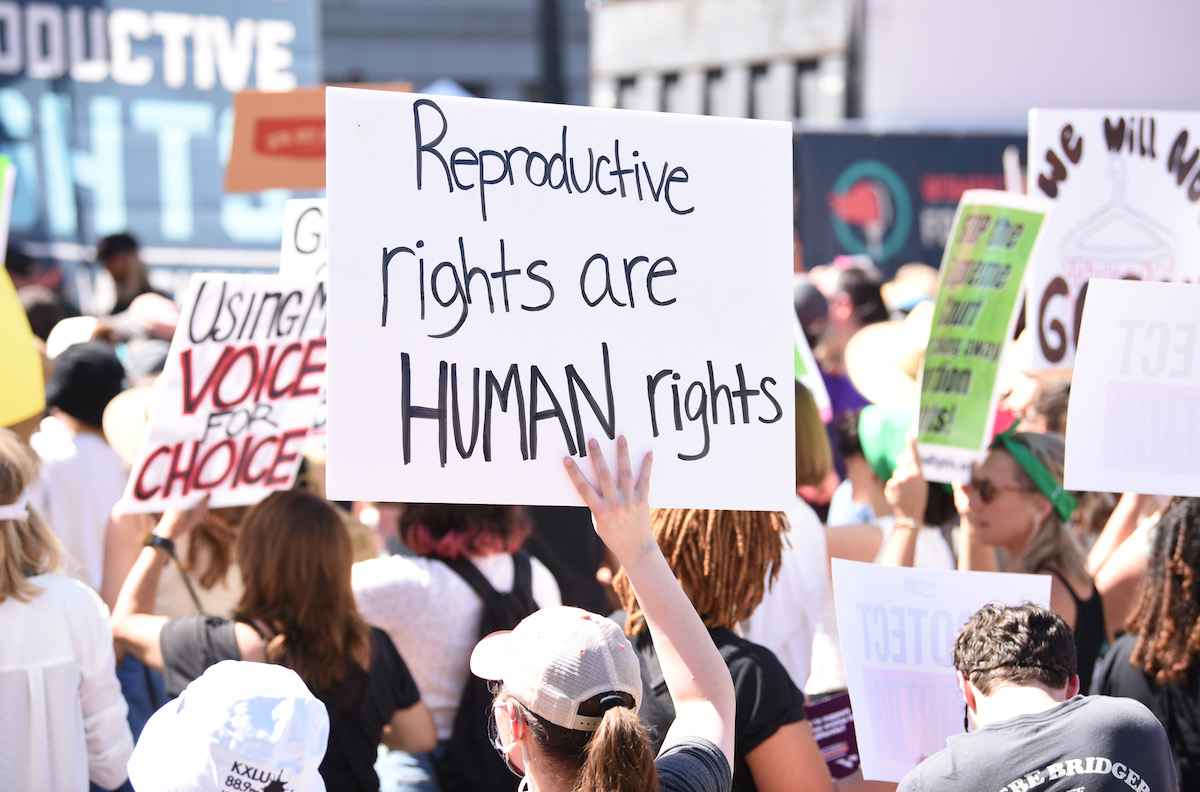Brittany Watts Will Not Be Criminally Charged for Having a Miscarriage
It never should have even been a question.

Brittany Watts, 34 years old, will not be criminally charged for having a miscarriage as decided by The Trumbull County grand jury. The case received national attention, standing as yet another example of women’s reproductive health and outcomes being criminalized, especially in a post-Dobbs world.
***Content warning: discussion of miscarriage***
On Thursday, January 11, a grand jury in Trumbull County issued a verdict of “no bill” to the charge of felony abuse of a corpse, which means that the charges against Watts will be dismissed immediately. This came after a month-long investigation into Watts’ miscarriage, which occurred on September 22, 2023. Watts had a miscarriage in her own home, on her toilet, after discovering that she was facing life-threatening complications due to her pregnancy, and that her fetus was going to be non-viable.
The Trumball County grand jury was tasked with deciding whether there was enough evidence to charge Watts, a 34-year-old Black woman, with the charge of a fifth-degree felony. The charge comes from an Ohio law that penalizes the treatment of a human corpse in a “way that the person knows would outrage reasonable family sensibilities” or “community sensibilities.” If she had been found guilty, Watts would have faced up to a year in prison and a $2,500 fine.
Watts’ lawyer, Traci Timko said in a statement last December:
“This miscarriage took place in her home, on the toilet. Ms. Watts learned days before this that a miscarriage was inevitable and that the fetus could not survive outside the womb due to gestational age. The medical examiner testified at a preliminary hearing that this fetus died in utero and showed no signs of injury.”
The miscarriage occurred after Watts had gone into the hospital to discuss her excessive bleeding twice, and was then told that her water had broken prematurely and that she had “severe oligohydramnios” (‘ow amniotic fluid). Despite being at risk and told she may need to induce labor, Watts reportedly left the hospital after waiting eight hours as staff deliberated whether that course of action was legal. The fetus was deemed too young to be delivered but Ohio law stated that abortion was illegal after 21 weeks and six days. Watts was reportedly 21 weeks and 5 days into her pregnancy.
A dangerous post-Roe world
In this instance, Watts did not seek nor want an abortion, she had a miscarriage, which was confirmed by the autopsy. Still, even in cases like these, more women are facing criminal charges, especially women of color. Grace Howard, assistant justice studies professor at San José State University, stated, per the Associated Press:
“Roe was a clear legal roadblock to charging felonies for unintentionally harming pregnancies, when women were legally allowed to end their pregnancies through abortion. Now that Roe is gone, that roadblock is entirely gone.”
Women are now forced to sit through legal proceedings to prove their innocence at a time when they should be allowed to grieve their loss.
Only hours after the result of “no bill” was handed down, Watts addressed a crown of roughly 150 people who had shown up in solidarity with her plight, “I want to thank my community — Warren. Warren, Ohio. I was born here. I was raised here. I graduated high school here, and I’m going to continue to stay here because I have to continue to fight.”
“No matter how shocking or disturbing it may sound when presented in a public forum, it is simply the devastating reality of miscarriage,” attorney Traci Timko added in her statement, “While the last three months have been agonizing, we are incredibly grateful and relieved that justice was handed down by the grand jury today.”
Though Watts may have been cleared of the charges, there are still many women who have been sentenced or face sentencing for something that was beyond their control. For many, a pregnancy can be a blessing, but even without these laws, carrying a baby can also be terrifying, with between 10 to 20 percent of pregnancies resulting in miscarriage as well as the numerous medical risks that are associated with pregnancy.
Now, pregnant people will have to carry the stress of wondering if their grief and trauma will be criminalized. Now that Roe v. Wade is gone, so too are protections and rights for women’s reproductive health, and that, as proven in this and many other instances, is a terrifying world to exist in.
(featured image: Araya Doheny/FilmMagic)
Have a tip we should know? [email protected]
